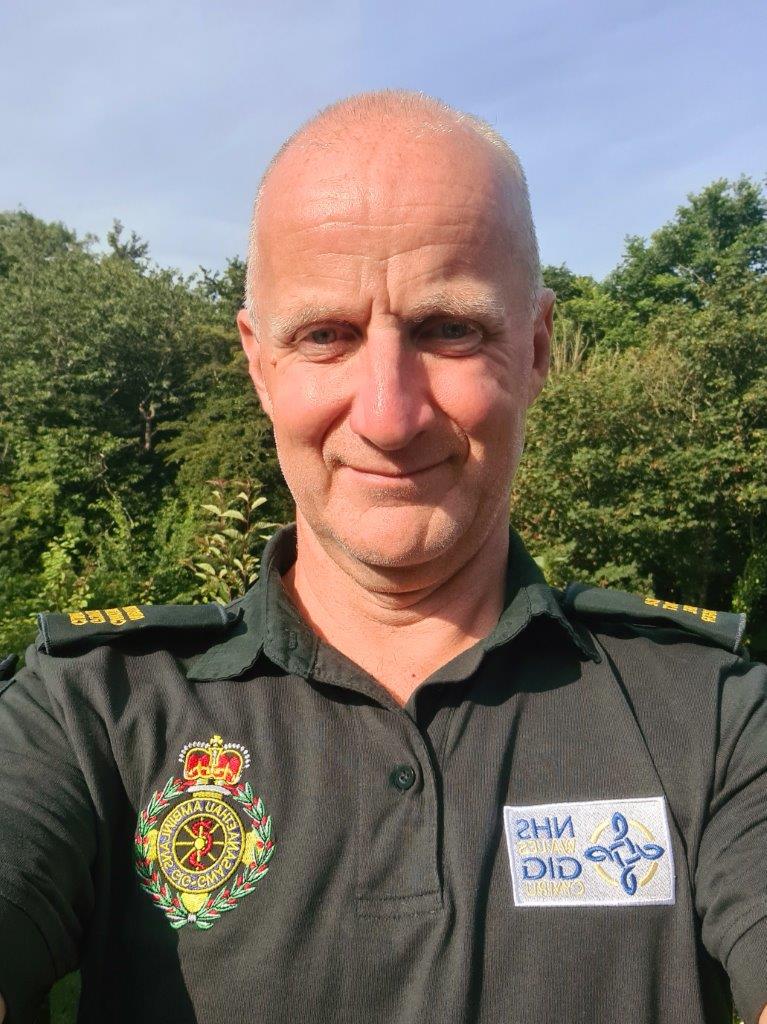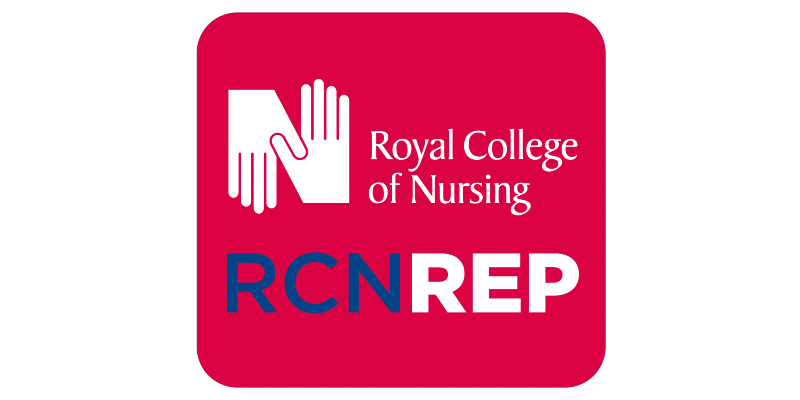
Q&A with Craig Brown
Craig Brown, Specialist Clinical Lead for the NHS 111 Wales Service at the Welsh Ambulance Service Trust tells us about his career journey, current developments in the service and his role as an RCN Wales Rep.

How did you become interested in a career in healthcare? How did you get into your role that you are in now?
I trained in North Wales, 32 years ago. I went to work in the emergency department after training.
I’ve had jobs as a resus officer, ED charge nurse, emergency planning, including for the Olympics and Operations Manager for Addenbrookes A&E dept.
I came back to Wales about seven years ago when I went to mid- Wales as a clinical lead nurse. Five years ago, I joined WAST in a nurse advisor role on the phones.
I progressed on the clinical support hub and now this brand new role – specialist clinical lead. I cover the whole of North Wales, three call centres, providing leadership and progressing some of the pathways and developments for some of our nursing staff.
It is a regional based role. There are three in Wales.
There are about 600 staff working for NHS 111 Wales as a national service, hosted by WAST. 111 has been rolled out over the past six years.
Is there anything that you would like people to know about nurses working within WAST?
NHS 111 Wales was previously NHS Direct Wales. That was very much a telephone advice service. 111 is the pathway to the GP out-of-hours but it is also an experienced group of clinicians, nurses and paramedics who provide advice. They also signpost to the relevant service. We know there is pressure across the whole organisation, all the health boards, all the services at the moment.
We make sure that prioritisation is clinical but also being aware that sending too many people down to A&E isn’t going to protect that A&E department and those that are in most need. Similarly, with GP out-of-hours – again, there are other pathways, including our pharmacists who provide a fantastic service. Our patients don’t always appreciate what they offer so we signpost.
The front module is that the call handlers take the first call, they use a system of prioritisation. They will ask specific question; they will reach an outcome. They always have clinical support – in the way of a paramedic or a nurse behind them who can provide guidance to them and advise whether that person needs a different level of care.
We will stream some of those patients which are very clear on where they need to go, other patients will be put on to have a call back with a clinician. They will then go through a more in-depth assessment. That includes self-care, opticians, dental, pharmacy, referral into specialist clinical, minor injury units, urgent care centres, ED or transfer to 999 service.
Tell us a bit more about your role.
Our structure is – nurse advisor and senior clinicians – who manage the shifts and manage the service across Wales, then three specialist clinical leads who are very much about development.
A current project I’m working on now is clinical supervision. We are also looking at the career development framework. We have staff nurses who are undertaking Master’s level courses in remote clinical decision making.
We also look to engage with patients to see what they think about the service, with a particular interest to some of our learning disability patients, how they access the service. We of course answer phone calls, but we also offer a web-based service.
We work with some of our in academia looking at key themes as well.
How does technology fit into the service?
I think the directory of services (DOS) that we use is one of the better provisions. It still needs more work, but it links to all the facilities that are available across Wales, in terms of all the health care providers. For example, it provides answers to questions which pharmacies are open until 8pm this evening, can I do a self-referral for certain treatments and how can I find a physio? That is where our DOS provides us with a wide level of knowledge across the whole of Wales so that we can direct patients.
Is staffing an issue for you?
Staffing is always a challenge at the busiest of times. Saturday mornings are a big pressure for us. We know that we are short of nurses across Wales, and we suffer from that as well as everyone else. There have been extended wait times, but we have improved our interactive voice at the beginning of the call so that patients now get a time of how long they are going to wait. We then give them the likely time of call back.
Bear in mind at different times of the year we have a significant number of tourists in Wales, and they often won’t have any provision or any local knowledge of health care provision here so that puts an added pressure on the service.
How did the service do during Covid-19?
The pressure was enormous. We had never seen the volume of calls as we did during the peak of the pandemic. Hopefully we will never see that volume again. It was very much an indication of where things were going.
The initial calls were very much our clinicians having to establish where callers had come home from (Italy etc). But then we saw the increase in sickness. It was trying to manage the pressures whilst learning about the virus at the same time. Although we had clear indications about loss of smell, taste etc, there was a lot of discussion between us as clinicians about additional symptoms patients were experiencing.
People were refusing to go to emergency departments because they were scared about what may happen or what they may catch. A significant number of calls were because there was a lack of access to GPs during that time.
It was really challenging for our clinicians who were struggling with thinking they were dealing with an abdominal or chest pain and then suddenly realising the patient hadn’t seen anybody for two weeks and so there was the added anxiety on top as well as the reluctance to go anywhere. That became quite a challenge in terms of the call length as they went up significantly.
Moreover, we were trying to recruit during this time. Recruitment issues meant that we had to have new call centres built. We had to increase capacity but at the same time all staff had to be two metres apart. It was a challenging time for everybody. We had volunteers and people returning to work from retirement.
Tell us about the working environment
We serve over a million calls a year and we have a very safe system. We get very few complaints and very little negative feedback. We work in an environment that is very protected and the IT equipment is fantastic. We work in a well-lit, nicely built, brand new building. That is unusual in terms of a nursing role where you can use your clinical judgement to deal with one patient at a time, to give that patient the best care that you possibly can. The best advice, without being pulled in many, many different directions.
The computer system we have is there to support the clinicians with appropriate questions.
We also have opportunities to work from home.
Tell us about your role as an RCN rep
I am an RCN Steward and a Learning Rep which I have been doing for about four years. This role is growing in terms of the fact that we have more and more nursing staff coming in to WAST. We work in partnership with other trade unions as part of that we are elected to certain parts of the organisation, certain committees etc. As an RCN Rep, I also sit on a Trust Board with one other rep from one of the other unions.
That is a very privileged position for our membership to have somebody representing the RCN on the Trust Board for development. And on many of the sub Board committees, people and culture, equality committees, academic committees. That allows us to have a great influence across the whole of the organisation and upwards as well. It is very powerful for a small group of nurses in a predominantly led paramedic, ambulance, emergency led service organisation. I feel very privileged in that.
The opportunities for RCN members to become stewards is there, please come and join us so that we can support our members.

Page last updated - 04/08/2022






